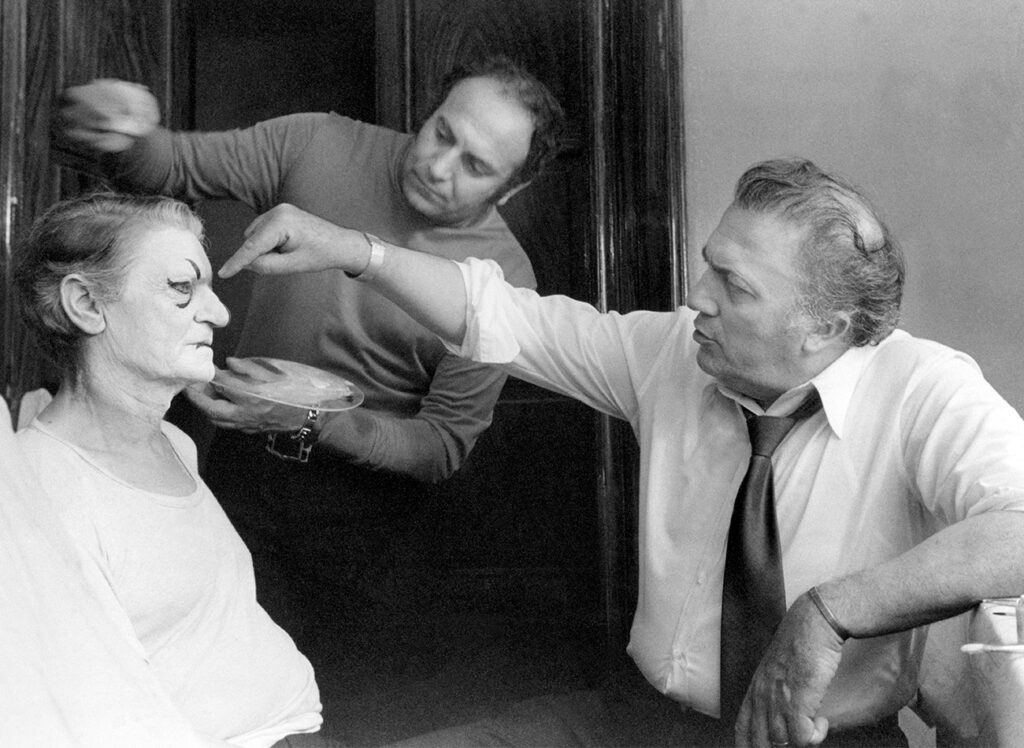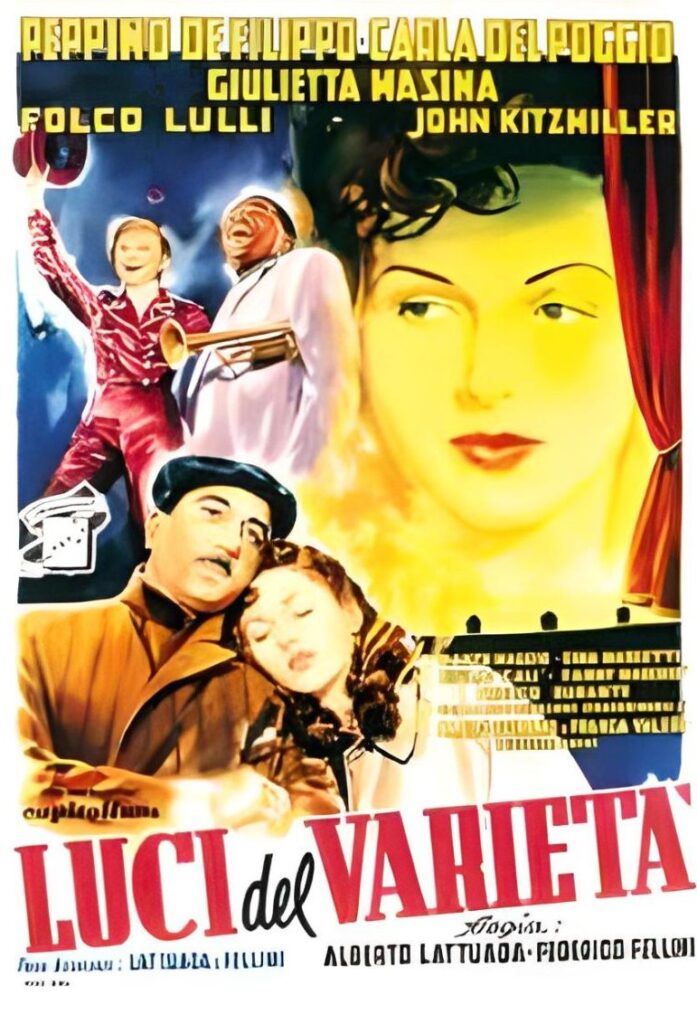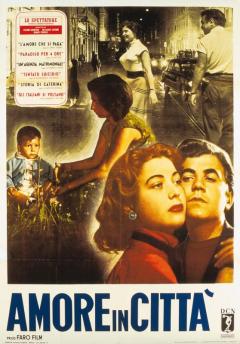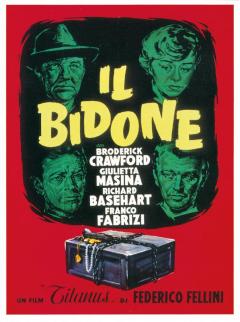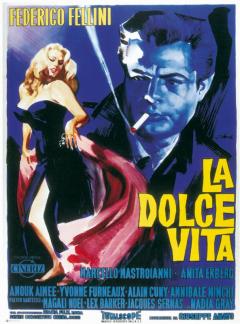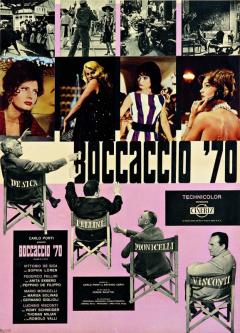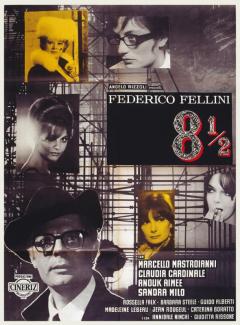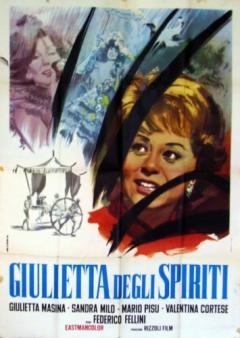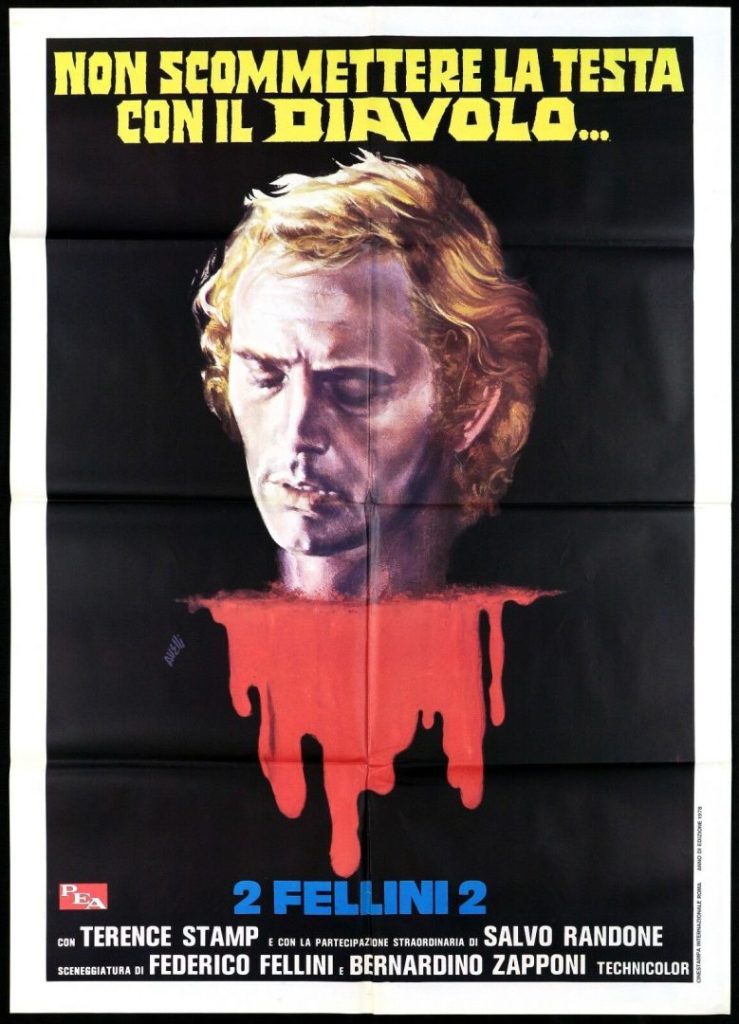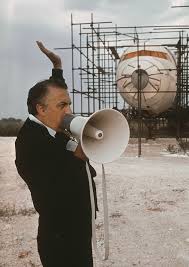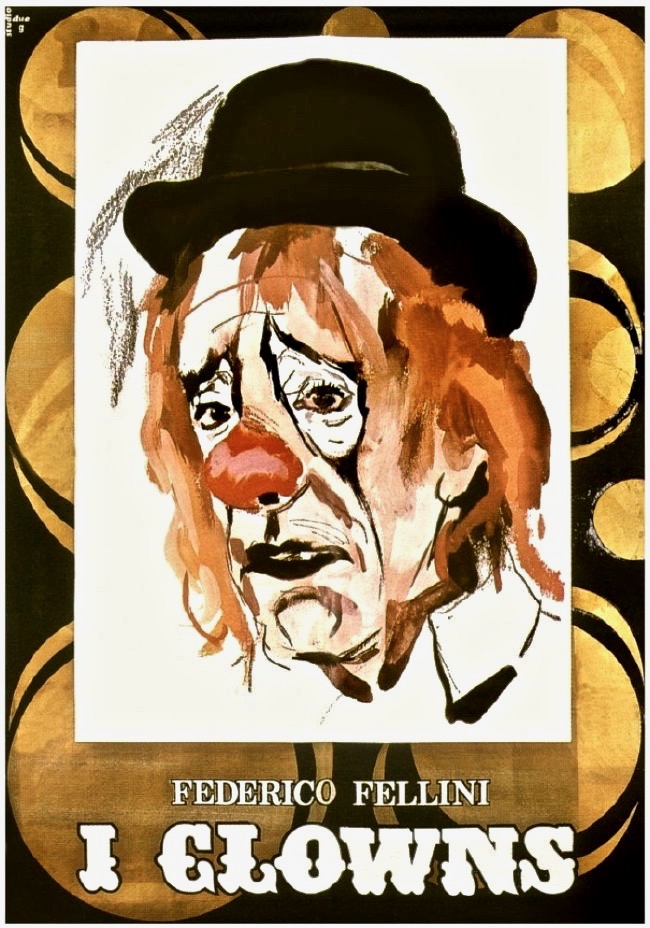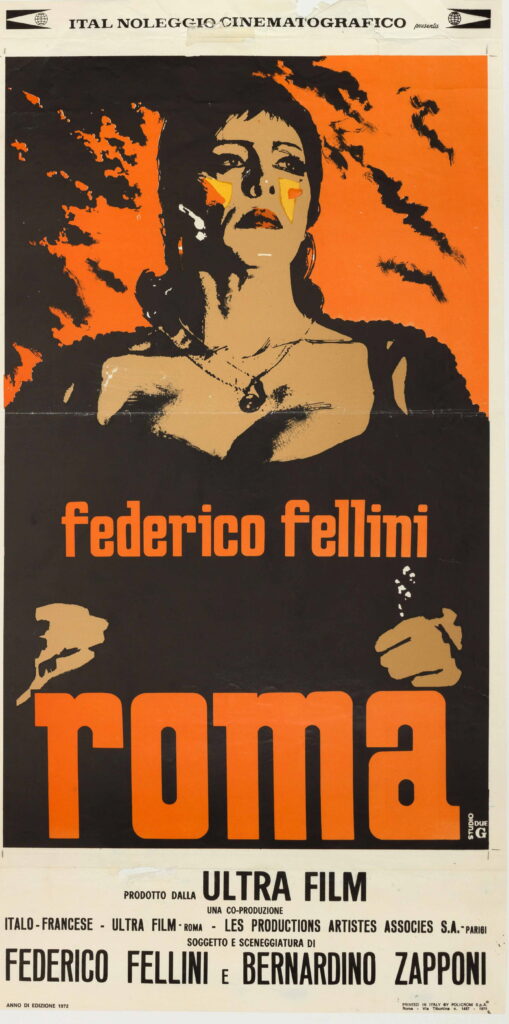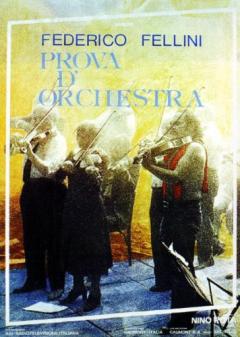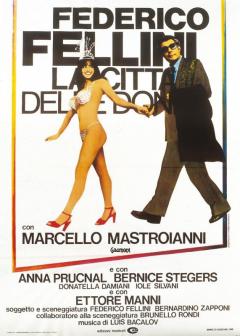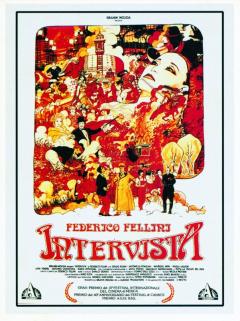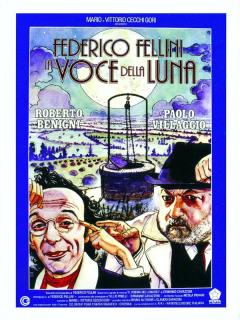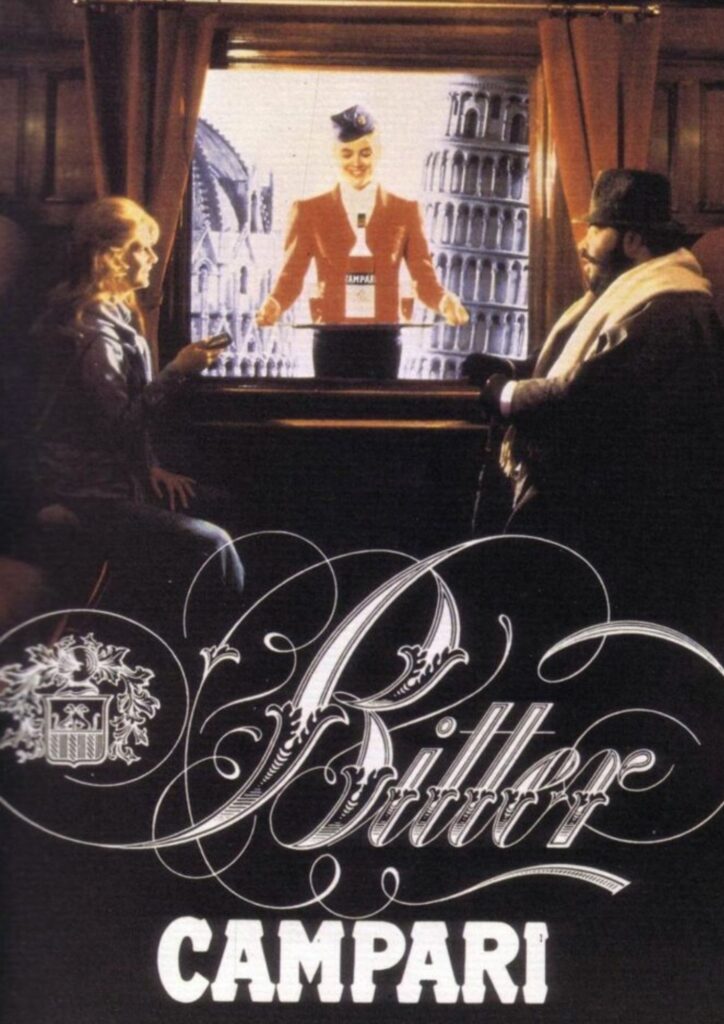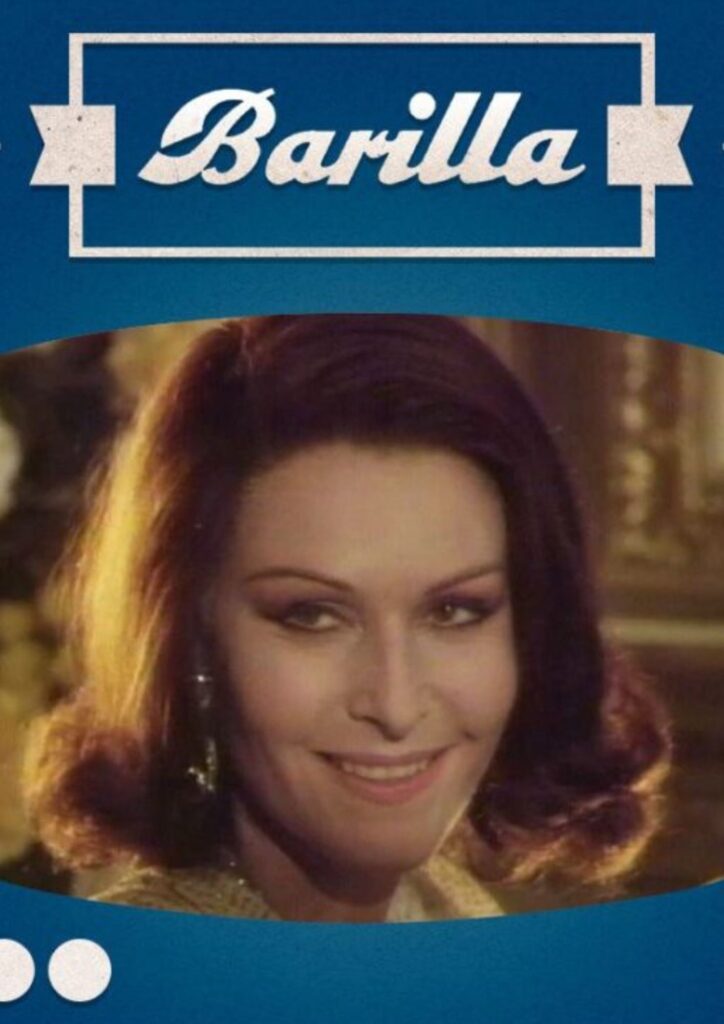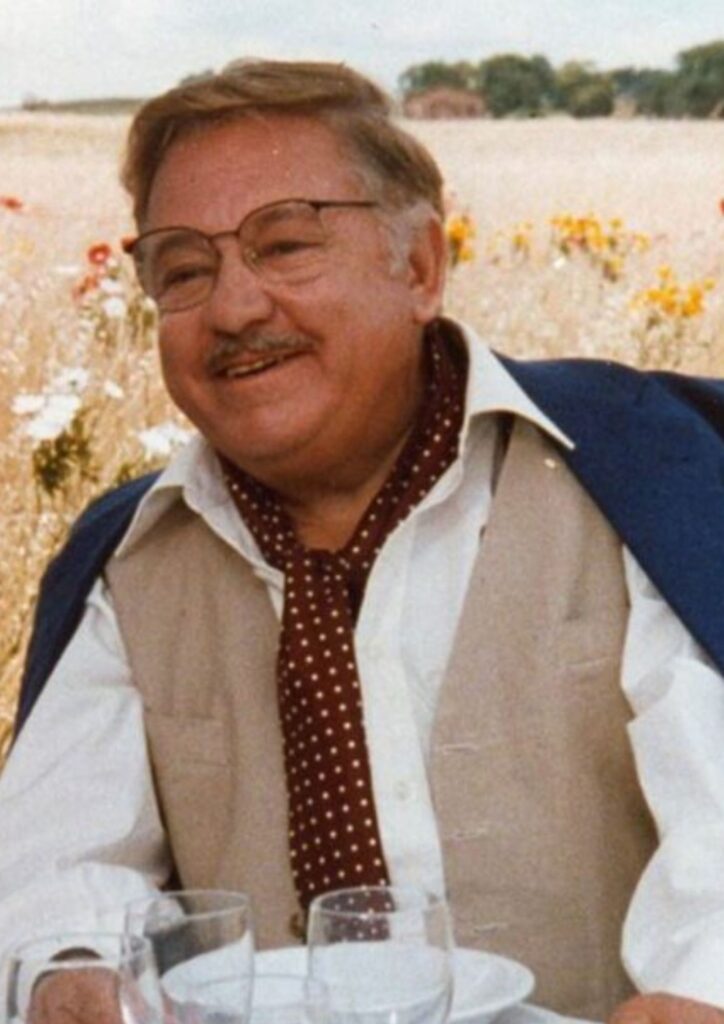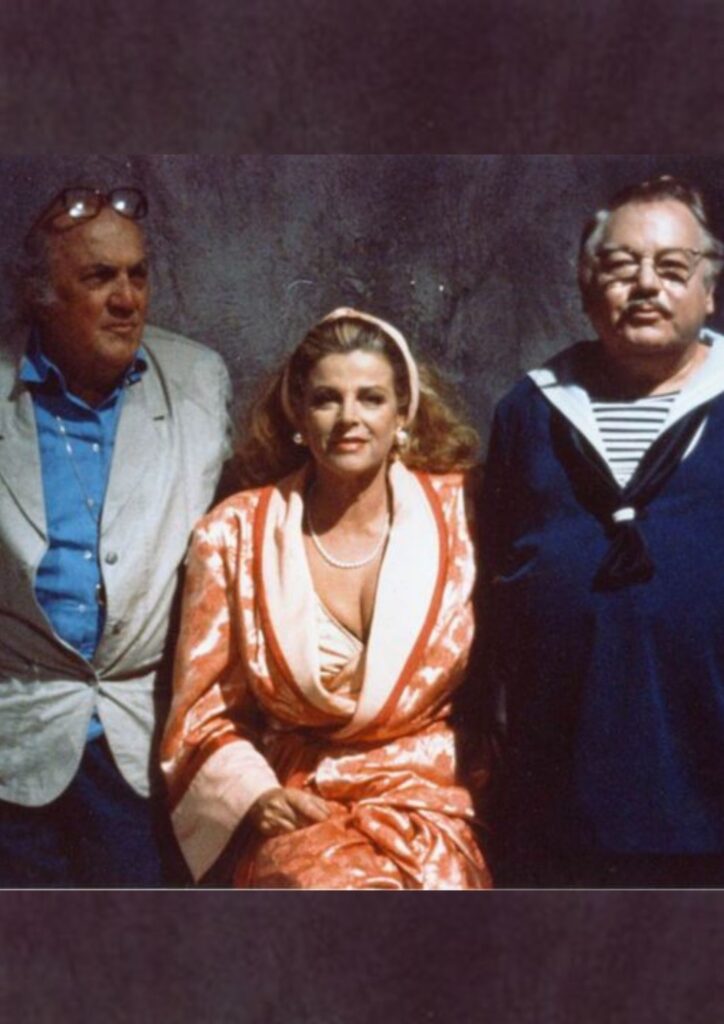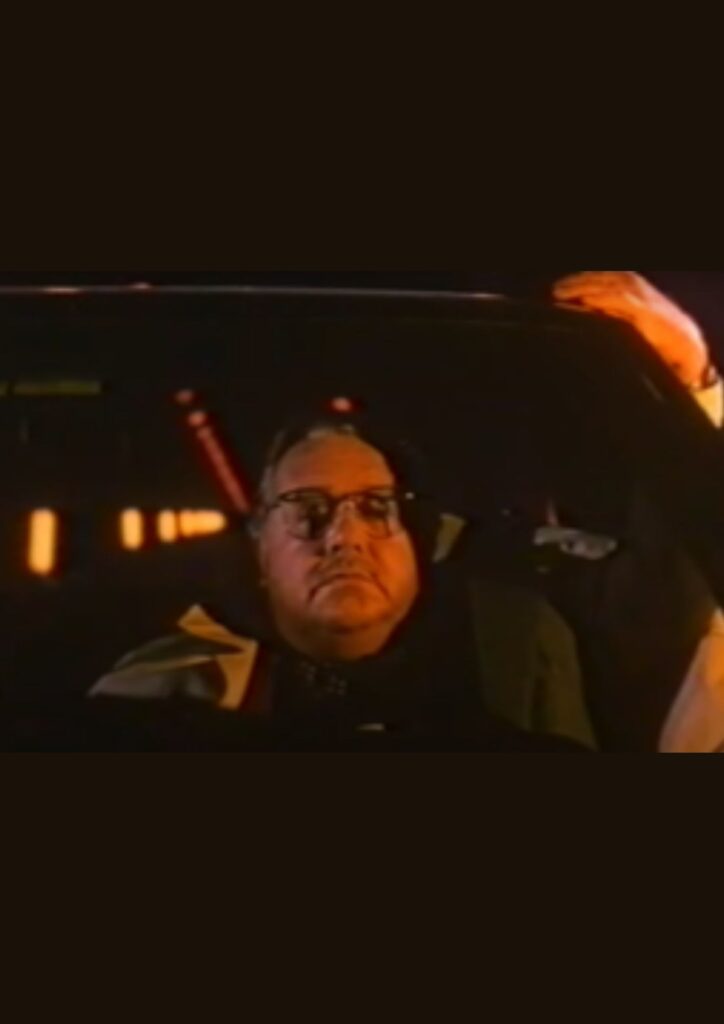Biography
Federico Fellini (Rimini, 20 January 1920 – Rome, 31 October 1993) began to make a name for himself as a caricaturist. To promote films, the manager of the Fulgor Cinema commissioned him to draw portraits of the stars. After moving to Rome in January 1939 on the pretext of enrolling in law school, he joined the editorial staff of a popular satirical periodical , ‘Marc’Aurelio’, becoming popular through hundreds of works by Federico. He joined avant-garde circles, writing monologues for the comedian Aldo Fabrizi, and collaborating on radio variety shows where he met the young actress Giulietta Masina (1921-1994), whom he married on 30 October 1943. He worked on the sets of “Roma città aperta” and immediately afterwards on “Paisà”, becoming friend with Roberto Rossellini. The first film of Federico Fellini as a director, “Lo sceicco bianco” (1952), didn’t initially succeed, but success arrived with “I vitelloni” (1953), which won the Silver Lion at Venice Film Festival and contributed to launch Alberto Sordi’s career. This was followed by “La strada” (1954), starring Giulietta Masina and winning an Oscar, and it was only the first of a series of films that would place Fellini among the greats of cinema. Fellini is the first director for most Oscar wins (a total of five) the last of which Honorary Award in 1993, a few months before his death.
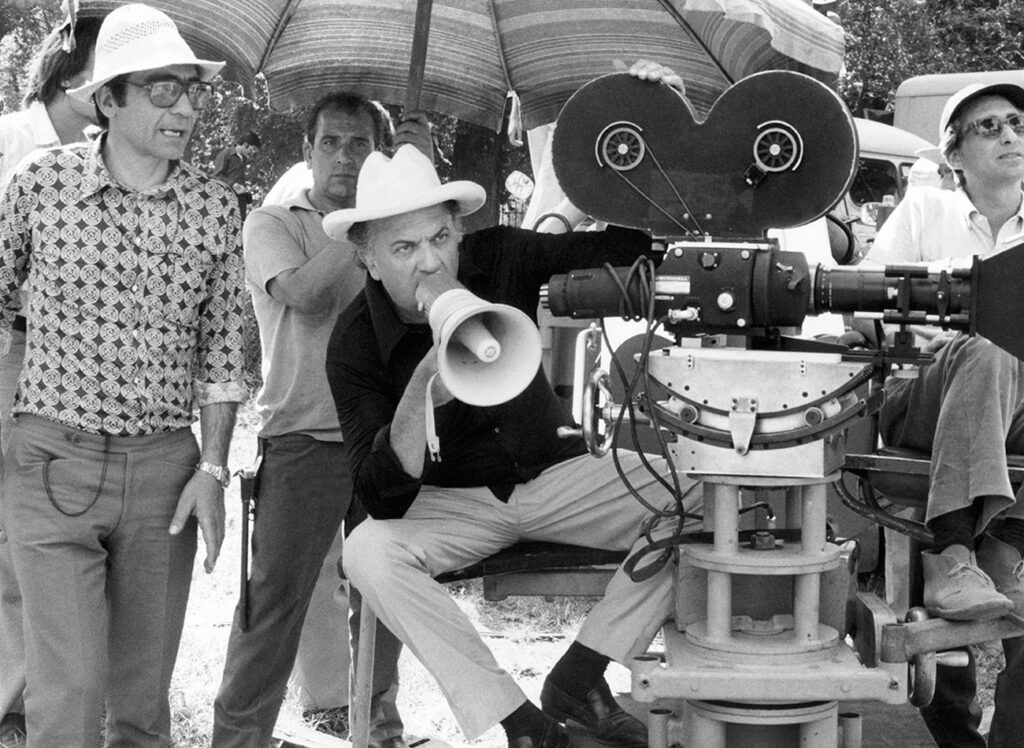
Fellini’s filmography as director consists of 24 films (including those co-authored, such as “Luci del varietà”, or parts of episodic films, such as “Agenzia matrimoniale”, “Le tentazioni del dottor Antonio” and “Toby Dammit”) shot between 1950 and 1990.
To these are added the five commercials: Campari, Barilla and three for the Bank of Rome.
These last, shot in 1992, are in fact his last directing efforts.
Before becoming the author of his own films, Fellini had already worked extensively in cinema, since the year of his arrival in Rome on 1939. Immediately after the war he formed with Tullio Pinelli the most sought-after pair of screenwriters in arthouse cinema.
